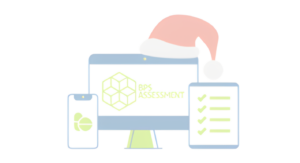Passing your prescribing exams requires more than just memorising drug names and guidelines – it’s about understanding why certain prescribing decisions are correct and learning from your mistakes. That’s where detailed feedback plays a crucial role in building confidence and improving performance.
BPS Assessment’s practice papers provide comprehensive feedback, breaking down your answers to highlight what you did well and where you can improve. By making the most of this feedback, you can refine your prescribing skills, avoid common mistakes, and approach your next prescribing exam with confidence.
Let’s explore how to use this feedback effectively in your revision strategy.
1. Understand Where You Went Wrong
One of the most valuable aspects of BPS Assessment’s feedback is its ability to pinpoint mistakes. Instead of simply marking an answer as right or wrong, the feedback provides:
- A detailed explanation of why the correct answer is the best choice.
- Insights into common errors and misconceptions.
- An analysis of optimal vs. sub-optimal answers, helping you see where small mistakes can impact patient safety.
Tip: After each practice paper, go through the feedback carefully and categorise your mistakes – was it a calculation error, a misunderstanding of contraindications, or a misinterpretation of the question? Identifying patterns will help you focus your revision.
2. Learn from Sub-Optimal Answers
Not all incorrect answers are completely wrong – some responses may be partially correct but not ideal. The feedback highlights:
- Why an alternative response is better, so you can refine your decision-making?
- What makes an answer sub-optimal such as missing key safety considerations.
- How to improve for next time, ensuring you select the safest, most appropriate option in future exams.
Tip: Keep a revision journal where you write down sub-optimal answers that you’ve given and note the reasoning behind the best answer. This will reinforce learning and help you avoid similar mistakes.
3. Improve Your Exam Technique
Feedback doesn’t just teach prescribing principles – it also helps refine how you approach questions in prescribing exams.
- Question interpretation – Understand what examiners are looking for.
- Time management – Recognise which questions you spend too long on.
- BNF navigation skills – Learn how to find information quickly and efficiently.
Tip: If you struggled with time management in your practice papers, try setting a timer for each question to get used to working under exam conditions.
4. Strengthen Your Clinical Judgement
Safe prescribing isn’t just about getting the right dose – it’s about making well-rounded clinical decisions. The detailed explanations provided in BPS Assessment’s practice papers allow you to:
- See the rationale behind correct answers, helping you develop a prescribing mindset.
- Understand safety considerations, such as interactions, contraindications, monitoring and data interpretation.
- Apply this knowledge to real-world scenarios, ensuring you’re not just passing an exam but also becoming a safer prescriber.
Tip: Read through the feedback even for questions you got right – there may be extra insights that strengthen your understanding.
5. Track Your Progress Over Time
One of the best ways to boost confidence before a prescribing exam is to see tangible improvement. By regularly completing practice papers and reviewing your feedback, you can:
- Identify topics where your performance is consistently improving.
- Spot recurring weak areas and adjust your revision focus.
- Feel more confident as you see your scores and prescribing accuracy improve.
Tip: Keep a progress log where you track your scores and common mistakes. This will help you stay motivated and ensure you’re making steady improvements.
Turning Feedback into Success
Detailed feedback is one of the most powerful tools in your exam preparation. By actively engaging with practice paper feedback, you can:
- Learn from mistakes and sub-optimal answers.
- Strengthen your clinical reasoning and prescribing confidence.
- Improve time management and exam technique.
- Track your progress and refine your approach before exam day.
- The more you understand and apply this feedback, the more prepared you’ll be to pass your prescribing exam—and to prescribe safely and effectively in clinical practice.
If you’re looking for high-quality practice papers with detailed feedback, visit the BPS Assessment Learner Portal. Here, you’ll find a range of resources designed to help you refine your prescribing skills, improve your confidence, and perform at your best on exam day.
Get started today by exploring our set of Prescribing Practice Papers and take your revision to the next level.





